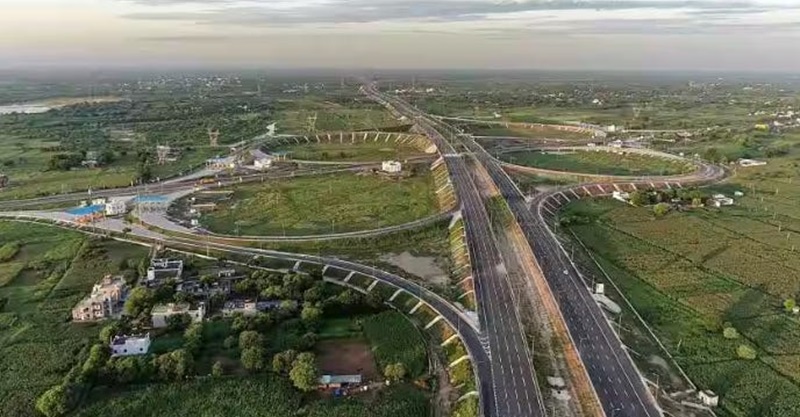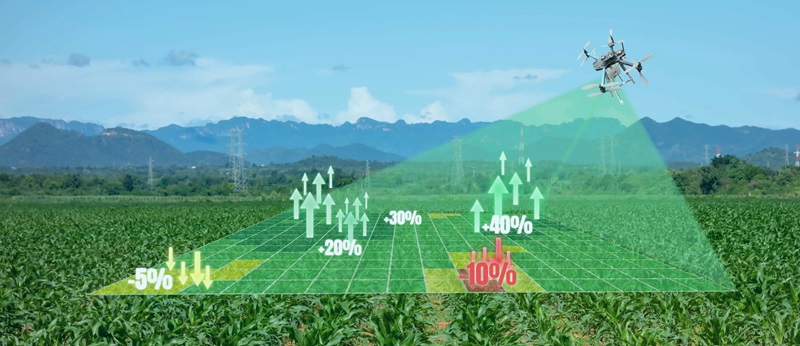Revolutionising Healthcare: Exploring Innovations in Medical Technology, Telemedicine, and Delivery Systems in India

Medical technology, including devices, software, and services, is crucial for diagnosing, treating, and preventing diseases. India is rapidly evolving in this field, enhancing its medical landscape and emerging as a global player in healthcare innovation.
India’s MedTech Market
India’s MedTech market, projected to expand at a compound annual growth rate (CAGR) of 15.4% from 2020 to 2025, is a crucible of innovation. Start-ups and established companies alike are pushing the envelope with advancements such as HealthCube’s diagnostic devices, which offer rapid and precise results, significantly alleviating the strain on healthcare infrastructure and facilitating timely medical interventions. The positive impact of these innovations is evidenced by reports from the Public Health Foundation of India, which suggest that timely diagnostics can mitigate disease burdens by 30-50%.
India’s MedTech 2.0
India's healthcare sector stands on the cusp of a transformative shift with the advent of MedTech 2.0, poised to revolutionise healthcare delivery and align with the Arogya Bharat 2024 agenda to democratise high-quality healthcare access. MedTech 2.0 integrates cutting-edge technologies such as smart connected devices, AI-driven diagnostics, robotics, and digital therapeutics to enhance precision, improve clinical outcomes, and extend accessibility to remote and underserved regions. Its impact includes early disease detection through AI and big data analytics, which enables timely interventions and potentially saves lives, while telemedicine bridges healthcare access gaps. Additionally, MedTech 2.0 streamlines operations through digitised records and automation, reducing costs and enhancing care quality. A unified digital health infrastructure will further support these advancements by facilitating seamless data exchange and improving treatment accuracy.
Innovations in India’s MedTech Sector
"With the MedTech market projected to grow at a CAGR of 15.4% by 2025, India’s role in revolutionising healthcare is becoming increasingly significant."
The proliferation of low-cost internet and Android devices presents a transformative opportunity to bridge gaps in healthcare access. Innovations in telemedicine and remote diagnostics are set to revolutionise healthcare delivery, extending advanced medical care to underserved populations. The government's role is crucial, as its substantial healthcare expenditure positions it as a key partner for MedTech innovators. Public-private partnerships (PPPs) and the strategic use of Corporate Social Responsibility (CSR) funds are essential for scaling and disseminating these innovations. Historically dominated by developed nations, advanced medical technologies are now seeing significant advancements in India. Domestic progress, such as robotic surgery systems from SS Innovations, AI applications in healthcare, and innovations in 3D printing and wound care, highlight India's burgeoning role as a leader in MedTech. These advancements not only enhance healthcare accessibility but also solidify India's influence on the global MedTech stage.
Medical Technologies
Advancements in medical technology are reshaping the landscape of healthcare with unprecedented precision and accessibility. mRNA technology, instrumental in the development of COVID-19 vaccines, is now paving the way for targeted therapies and precise diagnostics. Telehealth has significantly improved healthcare accessibility, offering remote consultations and monitoring that cater to underserved populations. CRISPR technology has revolutionised genetic testing and targeted therapies through its precise gene-editing capabilities. Data integration, powered by artificial intelligence, enhances diagnostic accuracy and treatment planning by analysing extensive datasets. Nanomedicine employs nanoscale materials, such as gold nanoparticles, for advanced diagnostics and targeted cancer therapies. Additionally, wearable devices like smartwatches and fitness trackers facilitate real-time health monitoring, enabling early detection of potential health issues. These innovations collectively represent a transformative leap in personalised and accessible healthcare.
Evolution and Growth of Telemedicine in India
"Telemedicine has evolved from a peripheral concept to a central pillar of modern healthcare, significantly improving access to services in remote and underserved regions."
Telemedicine in India has witnessed a transformative evolution, driven by the imperative need for remote healthcare solutions during the COVID-19 pandemic. This period highlighted the essential role of telemedicine, propelling it from a peripheral concept to a central pillar of modern healthcare delivery.
The Ministry of Health and Family Welfare’s 2020 "Telemedicine Practice Guidelines" have been instrumental in formalising telemedicine practices. These guidelines establish a regulatory framework that standardises and governs remote consultations, thereby ensuring credibility and compliance across the sector.
Online consultations, prescriptions, and diagnostics have significantly enhanced access to healthcare services, particularly in remote and underserved regions.
Advancements in AI, machine learning, and cloud computing have refined diagnostic accuracy and facilitated seamless access to patient data. These technologies play a critical role in enhancing the efficacy and reach of telemedicine.Initiatives like eSanjeevani exemplify efforts to extend remote consultations to rural communities, bridging the gap between urban and rural healthcare delivery. This approach ensures that even the most geographically isolated areas receive quality medical attention.
Telemedicine supports integrated healthcare systems that combine remote consultations, monitoring, and electronic health records. This integration improves patient management and coordination of care, contributing to a more cohesive healthcare delivery model.
Key Advancements in Healthcare Delivery Systems
The landscape of healthcare delivery in India is rapidly evolving, driven by significant advancements in digital technologies and healthcare systems.
The National Digital Health Mission (NDHM) is spearheading the digitisation of health records, transforming patient care through enhanced data management and provider coordination. EHRs facilitate a more integrated digital health ecosystem, improving the efficiency of healthcare delivery.
Health Information Systems streamline healthcare operations by integrating appointment scheduling, billing, and inventory management. This integration optimises overall efficiency and patient management across healthcare institutions.
Technologies such as wearable devices and home-based health trackers enable continuous monitoring of patient metrics. These innovations are crucial for managing chronic diseases and reducing hospital readmissions by providing real-time data to healthcare providers.
AI and machine learning are revolutionising healthcare by aiding in disease diagnosis, outcome prediction, and personalised treatment plans. These technologies analyse large datasets to identify patterns, enhancing diagnostic accuracy and timeliness.
Telehealth platforms offer a comprehensive range of services, from virtual health coaching to mental health support. This broad spectrum of services extends beyond traditional telemedicine, providing holistic care that addresses diverse healthcare needs.
"India’s advancements in healthcare technology and delivery systems are setting a global benchmark for accessibility, efficiency, and innovation in medical care."
Mobile Health Applications (mHealth) empower individuals with tools for health tracking, medication reminders, and information access. These applications foster proactive health management and support individual wellness.
The integration of digital technologies with health insurance has led to the development of digital health insurance platforms. These platforms simplify policy management, claim processing, and customer support, enhancing the overall efficiency of health insurance services.
Additionally, AI-driven diagnostic tools enhance the accuracy and speed of medical diagnoses through advanced imaging technologies such as X-rays, MRIs, and CT scans. These tools are pivotal in the early detection of abnormalities and improve diagnostic precision.
Final Thoughts
India is experiencing a pivotal shift in healthcare, driven by advancements in medical technology and pivotal initiatives such as the National Health Policy and Ayushman Bharat, which have significantly enhanced both accessibility and affordability. Key advancements in health indicators and the expansion of infrastructure, exemplified by institutions like AIIMS and a growing number of medical colleges, underscore the progress made. Digital innovations such as CoWIN and the Ayushman Bharat Digital Mission have revolutionised service delivery across the nation. India’s prominent role in pharmaceuticals and medical tourism further highlights its global contributions. As we look towards India@2047, the focus is on expanding infrastructure and the healthcare workforce to sustain growth and ensure equitable access to healthcare for all.








